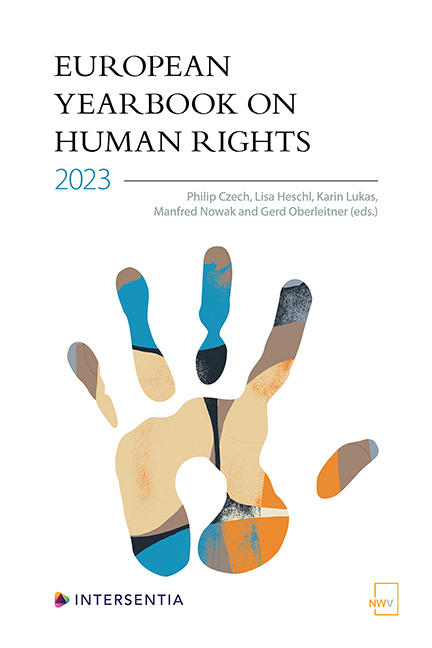A European Perspective on Safeguarding the Diversity of Cultural Expressions and Artistic Freedom in the Digital Environment
Published online by Cambridge University Press: 04 April 2024
Summary
ABSTRACT
Artistic freedom and the diversity of cultural expressions are protected by human rights instruments, as well as international cultural law based on United Nations Educational, Scientific and Cultural Organization (UNESCO) conventions, in particular the 2005 Convention on the Diversity of Cultural Expressions . This Convention, to which both the European Union (EU) and its Member States are Parties, specifies that the achievement of its objectives requires respect for human rights and fundamental freedoms. The monitoring framework of the 2005 Convention further contributes to the development of a human rights-based approach to the protection and promotion of the diversity of cultural expressions. This approach must also be reflected in the implementation of the 2005 Convention in the digital environment. As discussions on a European status of the artist and the discoverability of European content – both connected to artistic freedom and the diversity of cultural expressions online – are currently being held, this article examines states’ obligations from a human rights perspective. It refers to the work of United Nations (UN) human rights protection mechanisms, in particular the mandate of the Special Rapporteur in the field of cultural rights, which have specified states obligations’ to respect, protect and fulfil artistic freedom as a means to contribute to a diversity of expressions and vibrant societies. It also presents EU initiatives to regulate online activities and practices, which establish the respect of human rights as a fundamental principle. Ensuring respect for artistic freedom online is, indeed, an essential condition for access to a diversity of cultural expressions in the digital environment. The contribution concludes with a reminder of states’ obligations to make use of all existing fora to promote the protection of the diversity of cultural expressions and artistic freedom in the digital environment , and highlights the essential role of partnering with civil society to achieve this objective.
INTRODUCTION
Issues related to the protection of artistic freedom and the diversity of cultural expressions, including a European status of the artist, and measures to increase the discoverability of European content, are currently under discussion at European level. These are new developments.
- Type
- Chapter
- Information
- European Yearbook on Human Rights 2023 , pp. 205 - 228Publisher: IntersentiaPrint publication year: 2023

